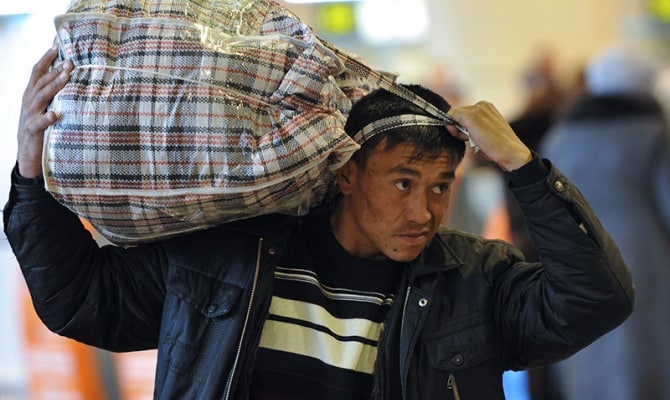A report released by the Asian Development Bank (ADB) in September this year notes that Tajikistan is experiencing significant adverse economic and social impacts from the Russian invasion of Ukraine. Rising global food and oil prices, disrupted trade and revenue shortfalls, stressed financial sector, returning migrants, and diminishing remittances are reportedly causing economic growth to decelerate sharply, and unemployment and poverty to increase.
The report, in particular, notes that Tajikistan is heavily dependent on remittance income, 80% of which comes from about 1 million migrant workers in the Russian Federation.
But migrant workers now struggle to find jobs in sectors that have traditionally absorbed them, such as services and construction, because the Russian economy began contracting this year, according to the report. Consequently, remittances are expected to decline by 25% from US$2.25 billion reported in 2021 to US$1.69 billion in 2022.
The report says this will have a significant social impact since more than 50% of households (about 735,000) rely primarily on remittances for the consumption of food and basic necessities, and are mostly located in the poorest regions and districts of the country.
Labor migrants are still a critical component in the economy of Tajikistan and remittances keep many struggling families at home above the poverty line.
According to official data from the Tajik authorities, an estimated 600,000 Tajik seasonal workers travel abroad each year, primarily to Russia but also to neighboring Kazakhstan, Kyrgyzstan and Uzbekistan.
Tajikistan still has the lowest per capita income of all the former Soviet republics. Migrant workers are thus of key importance in the country of 10 million.




